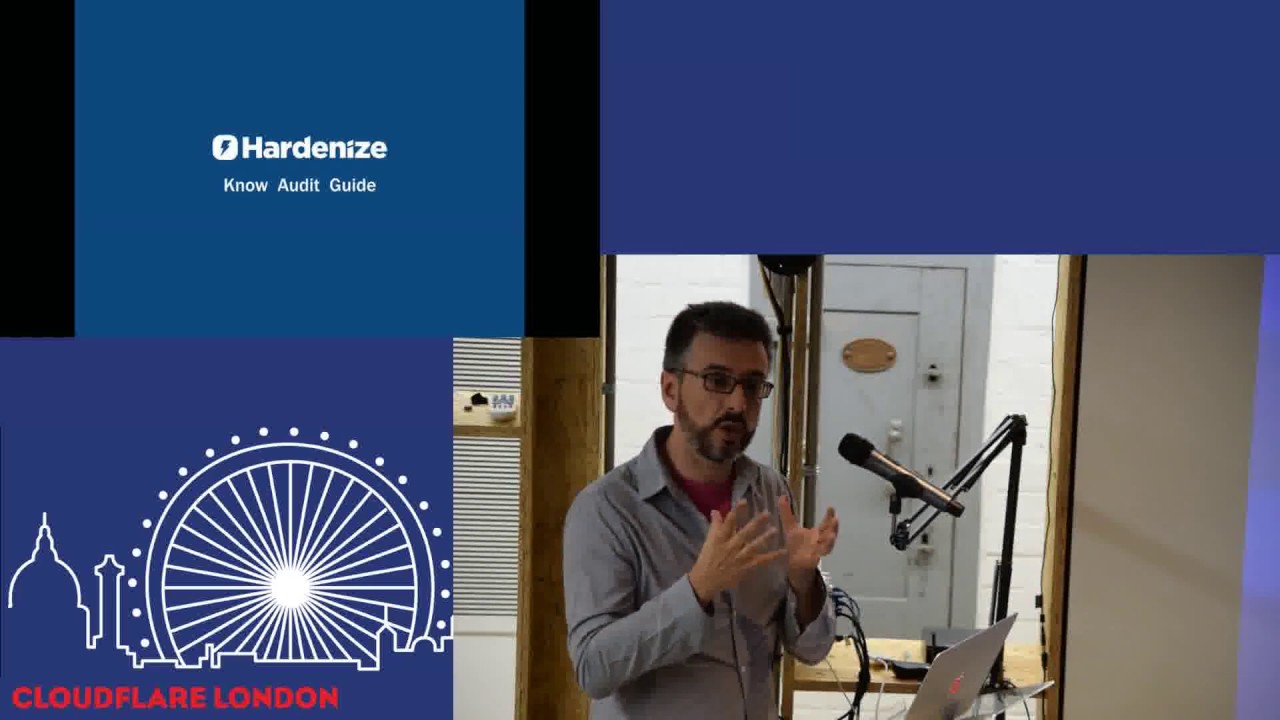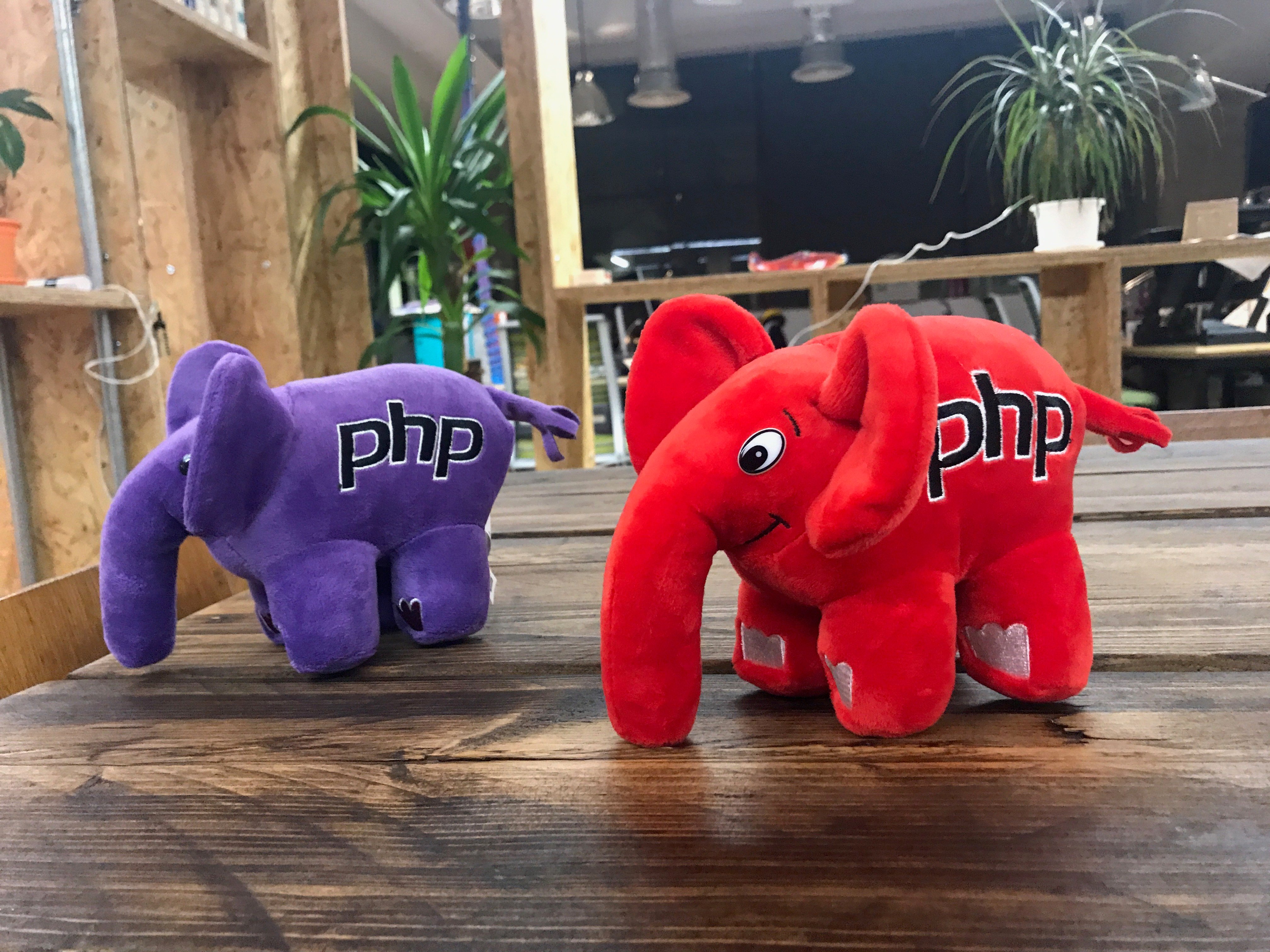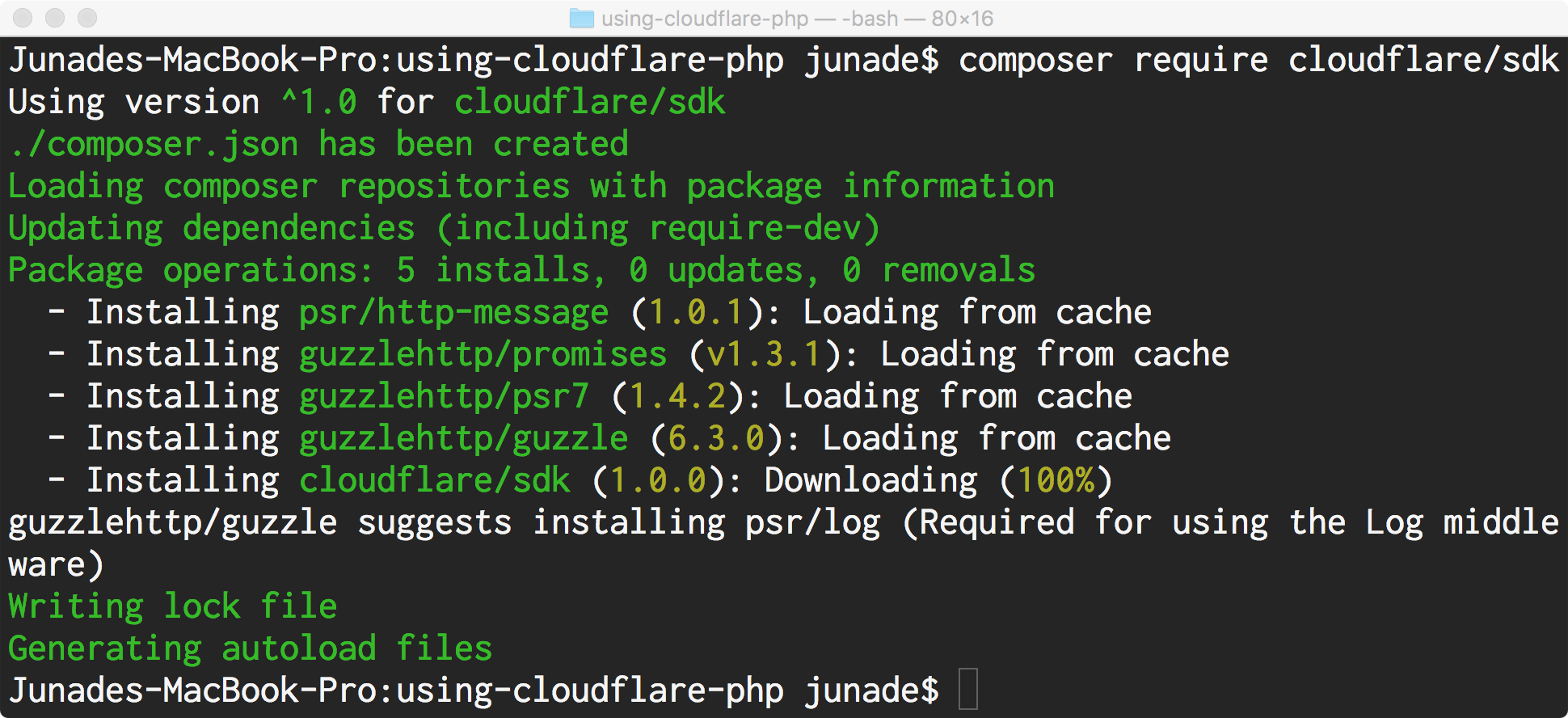Author Archives: Junade Ali
Author Archives: Junade Ali

Cloudflare helps make over 6 million websites faster and more secure. In doing so, Cloudflare has a vast and diverse community of users throughout the world. Whether discussing Cloudflare on social media, browsing our community forums or following Pull Requests on our open-source projects; there is no shortage of lively discussions amongst Cloudflare users. Occasionally, however, it is important to move these discussions out from cyberspace and take time to connect in person.
A little while ago, we did exactly this and ran a meetup in the Cloudflare London office. Ivan Rustic from Hardenize was our guest speaker, he demonstrated how Hardenize developed a Cloudflare App to help build a culture of security. I presented two other talks which included a primer on how the Cloudflare network is architected and wrapped up with a discussion on how you can build and monetise your very own Cloudflare App.
Since we presented this meet-up, I've received a few requests to share the videos of all the talks. You can find all three of the talks from our last London office meet-up in this blog post.

Back in May last year, one of my colleagues blogged about the introduction of our Python binding for the Cloudflare API and drew reference to our other bindings in Go and Node. Today we are complimenting this range by introducing a new official binding, this time in PHP.
This binding is available via Packagist as cloudflare/sdk, you can install it using Composer simply by running composer require cloudflare/sdk. We have documented various use-cases in our "Cloudflare PHP API Binding" KB article to help you get started.
Alternatively should you wish to help contribute, or just give us a star on GitHub, feel free to browse to the cloudflare-php source code.

PHP is a controversial language, and there is no doubt there are elements of bad design within the language (as is the case with many other languages). However, love it or hate it, PHP is a language of high adoption; as of September 2017 W3Techs report that PHP is used by 82.8% of all the websites whose server-side programming language is known. In creating this binding the question clearly wasn't on the merits of PHP, but whether we wanted to help drive improvements to the developer experience for Continue reading

From security cameras to traffic lights, an increasing amount of appliances we interact with on a daily basis are internet connected. A device can be considered IoT-enabled when the functionality offered by its Embedded System is exposed through an internet connected API.
Internet-of-Things technologies inherit many attack vectors that appear in other internet connected devices, however low-powered hardware-centric nature of embedded systems presents them with unique security threats. Engineers building Internet-of-Things devices must take additional precautions to ensure they do not implement security anti-patterns when addressing new problems, this blog post will investigate four such anti-patterns that have been used by real Internet-of-Things devices.
 Atmel ATMEGA8 Microcontroller Wikimedia Commons - CC BY-SA 3.0
Atmel ATMEGA8 Microcontroller Wikimedia Commons - CC BY-SA 3.0
HTTP Pub/Sub
Every time your IoT-enabled alarm clock sounds, you may want it to tell your coffee machine to brew some coffee. In order to do this, your coffee machine may subscribe to messages published by your alarm clock. One such way of doing this is to implement the Publish/Subscribe Pattern within the API of the IoT devices, for this example let's assume our alarm clock and coffee machine communicate through HTTP.
In order to subscribe to messages from the alarm clock, the coffee machine sends Continue reading


APIs are increasingly becoming the backbone of the modern internet - whether you're ordering food from an app on your phone or browsing a blog using a modern JavaScript framework, chances are those requests are flowing through an API. Given the need for APIs to evolve through refactoring and extension, having great automated tests allows you to develop fast without needing to slow down to run manual tests to work out what’s broken. Additionally, by having tests in place you’re able to firmly identify the requirements that your API should meet, your API tests effectively form a tangible and executable specification. API Testing offers an end-to-end mechanism of testing the behaviour of your API which has advantages in both reliability and also development productivity.
In this post I'll be demonstrating how you can test RESTful APIs in an automated fashion using PHP, by building a testing framework through creative use of two packages - Guzzle and PHPUnit. The resulting tests will be something you can run outside of your API as part of your deployment or CI (Continuous Integration) process.
Guzzle acts as a powerful HTTP client which we can use to simulate HTTP Requests against our API. Though PHPUnit Continue reading

 M42 Smart Motorway in the West Midlands, UK; courtesy of Highways England.
M42 Smart Motorway in the West Midlands, UK; courtesy of Highways England.
The load time of your website not only affects your search engine rankings, but is also correlated to the conversion rate on your site:
Cloudflare is determined to help website administrators boost the performance of their websites. From today, Cloudflare users on our Business plan will gain a previously Enterprise-only Page Rule option, “Bypass Cache on Cookie”. When used in conjunction with a “Cache Everything” Page Rule, this setting allows for websites to cache the HTML of anonymous page visits without affecting dynamic content.
By caching anonymous page views, Cloudflare is able to help ensure that your origin webserver doesn't waste time constantly regenerating pages which change rarely. This ultimately allows us Continue reading

GitHub offers a web hosting service whereby you can serve a static website from a GitHub repository. This platform, GitHub Pages, can be used with CloudFlare whilst using a custom domain name.
In this tutorial, I will show you how to use CloudFlare and GitHub together. By taking advantage of CloudFlare’s global network, you can utilise our CDN service to improve your site's performance and security.
Whilst GitHub Pages doesn't ordinarily support SSL on custom domains, CloudFlare's Universal SSL allows your users to access your site over SSL, thus opening up the performance advantages of HTTP/2.
GitHub Pages is designed to host sites that only serve static HTML. The ability to only host static content isn’t as big of a restriction as you might think.
Static site generators avoid repetitive update tasks of updating “latest posts” feeds, pagination or sitemaps; whilst generating static HTML that can be uploaded to any web hosting service without a scripting engine. Unlike ancient desktop tools like FrontPage and Dreamweaver which lacked a content model, modern static site generators have the design decisively separate from content.
Typically, CMS-based sites must query a database for content, then render the HTML to be served to the end Continue reading